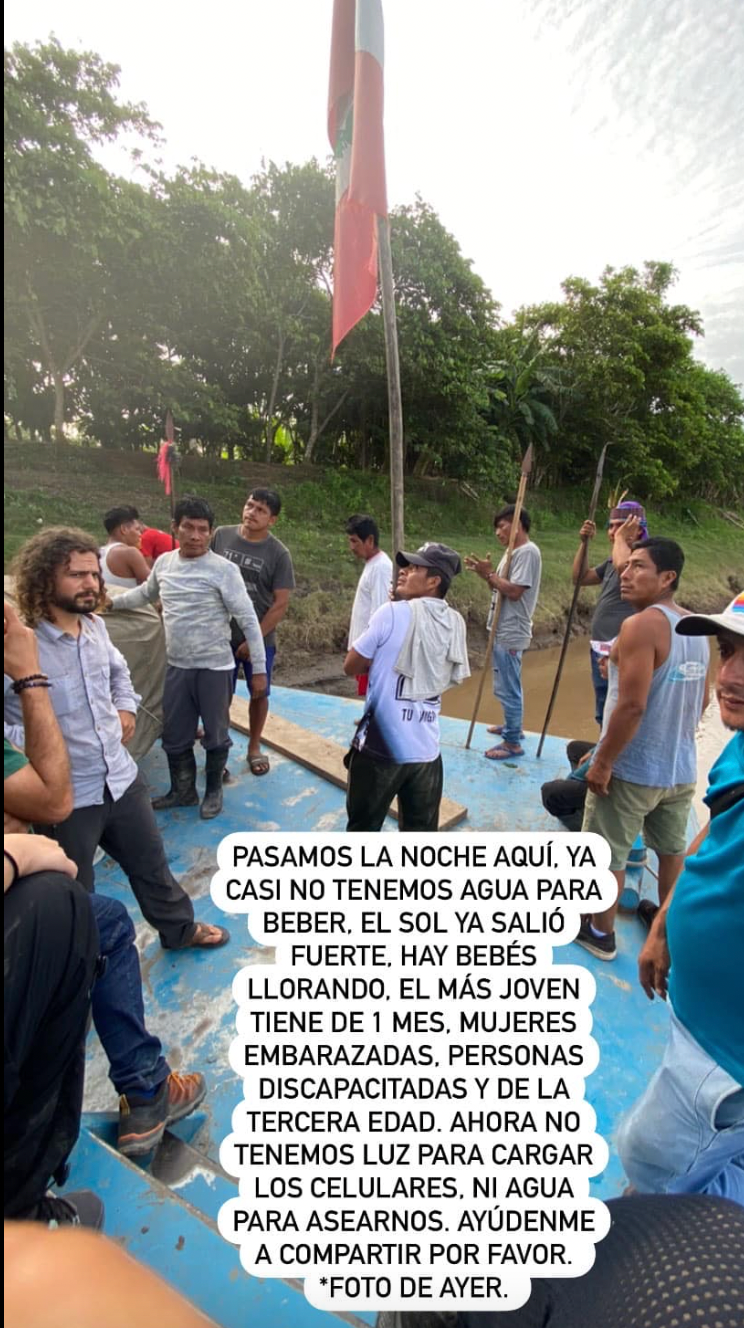More than 240 tourists, including US and UK citizens, are released after being ‘held hostage’ in Peru
Pregnant women, a one-month-old baby and elderly people were reportedly among those held hostage
Your support helps us to tell the story
From reproductive rights to climate change to Big Tech, The Independent is on the ground when the story is developing. Whether it's investigating the financials of Elon Musk's pro-Trump PAC or producing our latest documentary, 'The A Word', which shines a light on the American women fighting for reproductive rights, we know how important it is to parse out the facts from the messaging.
At such a critical moment in US history, we need reporters on the ground. Your donation allows us to keep sending journalists to speak to both sides of the story.
The Independent is trusted by Americans across the entire political spectrum. And unlike many other quality news outlets, we choose not to lock Americans out of our reporting and analysis with paywalls. We believe quality journalism should be available to everyone, paid for by those who can afford it.
Your support makes all the difference.More than 240 tourists, including US and UK nationals, have been released after they were detained by an Indigenous group in Peru.
The group was taken hostage around 10am on 3 November as part of a protest against the Peruvian government after more than 40 oil spills in the area, community leaders in the locality of Cuninico told local media. Pregnant women, a one-month-old baby and elderly people were reportedly among those held hostage.
The US Department of Justice said in a statement to ABC that the situation has since been resolved. A total of 248 people, including 228 Peruvian citizens, were held while they were on a riverboat for more than 24 hours, the DoJ said.
“Our very punctual request is that the government declares a state of emergency due to the constant oil spills in our territory, and a committee presided by the president is then commissioned,” community leader Wadson Trujillo told national outlet TVPeru Noticias.
Angela Ramirez, a local who claimed to have been detained by the indigenous group, had written on social media that there were infants among the hostages.
“We spent the night here. We are running out of water to drink, the sun is very strong, there are babies crying, the youngest is only one month old, pregnant women, disabled people, and elderly,” Ms Ramirez said on Facebook. “Now we do not have electricity to charge our phones, nor water to clean ourselves.”

Ms Ramirez said that the leaders who had detained them were kind and respectful and that the soonest “the government answered to their request, the faster the group would be released.”
Former Peruvian Prime Minister Anibal Torres hit out at local media for reporting that the government was not actively assisting the hostages and went as far as claiming that some members of the Cuninico community were to blame for the spill of about 2,500 barrels of oil, which have killed at least three locals.
According to El Pais, more than 6,000 people use the water affected by the oil spills in Cuninico and neighbouring communities. Leaders have previously blocked access to rivers and travelled to the capital to protest the government.
The spills were caused by Peru’s longest pipeline, Norperuano. The government declared a 90-day state of emergency in late September after the spills in Cuninico and Urarinas, but no agreements were made with locals.
The BBC reports that very few British nationals were in the detained group.
“We have started to run out of food and water. We’re doing okayish but we’re concerned for the pregnant females we have on board, the diabetics, the children, the elderly and the other ill people so we’re starting to get quite desperate,” Charlotte Wiltshire told the network.
“We are a little concerned that our boat has been now moved closer to the village but I understand that gives us a little more easy access to possible supplies later.”




Join our commenting forum
Join thought-provoking conversations, follow other Independent readers and see their replies
Comments